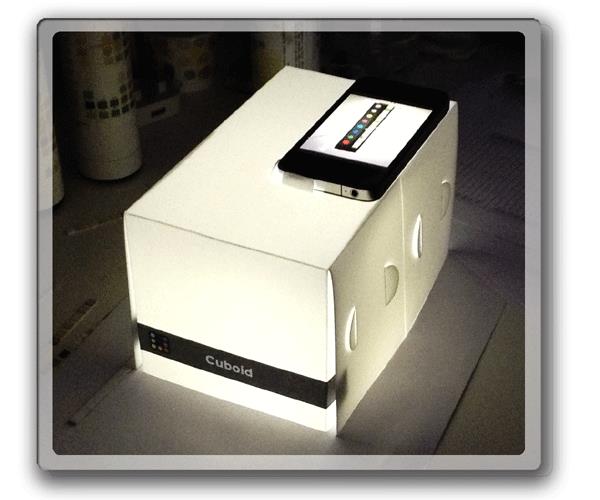India startup offers app to mobilize urinalysis

In the emerging world of medical tech and mobile-health, some interesting developments come from tools that make healthcare more accessible and provide preventive solutions for consumers across the world.
Take urinalysis, for example. It's a simple test, and yet, it depends on pathological laboratories, doctors, and so on, makes the entire process complicated, doesn't it?

This is where one Indian startup, Biosense, comes into picture with its iPhone application, called uChek. It is a med-tech company which launched in 2009 and is incubated at IIM, Ahmedabad.
Urinalysis typically can be a challenge, often requiring a sample of urine to be produced in a cup after which a chemical strip is dipped into the urine sample. This strip is then compared against a color-coded map which can be used to determine levels of glucose, bilirubin, protein, and other abnormalities in your urine. High levels of glucose, for example, would indicate diabetes.
Today, these can be diagnosed in an instant with the uChek smartphone app, according to Biosense, which boasts of making the ordeal of urinalysis disappear by simplifying the process in an affordable manner.
When you buy the Uchek product, it comes with an app and chemical strips that will help analyze urine samples. Once a chemical strip is dipped into urine, a picture is taken of the strip with a smartphone. The app then quickly analyzes the strip and produces accurate and easy-to-understand results.
According to co-founder Myshkin Ingawale, Biosense has always look to address problems associated with inadequate or inappropriate technology in healthcare. The company's first product, ToucHb, is a handheld battery operated device the size of a phone, which screens for iron deficiency anemia without requiring a blood sample from the patient.
Uchek is its second offering, touted as a lab in your phone that can help you detect problems early and help avert complications related to pregnancy, diabetes, kidney disease, and urinary tract infection.
In my opinion, this is quite an interesting integration of smartphone technology to solve a real-world problem for mainstream consumers who would find this very useful. Surprisingly, Biosense's competitors mostly are conventional lab analyzer equipment, costing $1,000 and above. In comparison, uChek matches i[ in accuracy and is available at a fraction of the cost (US$25). More importantly, it uses the data intelligently and provides users with early warnings about health.
Would certainly be a good option especially for elder people at home, who have to fret the regular visits to the pathological laboratories, the constant waiting of reports, an early diagnosis is something that would be good to know on a basic level.
According to Myshkin, some of the interesting features of this product are that it helps track 10 parameters in a person's urine, using the free smartphone app and an accessory kit. Results are generated on the phone for analysis, storage, and can be directly e-mailed to a doctor or loved one. The co-foudner said the next version of uChek--dubbed the Universal Release--is even more powerful, capable of measuring 14 parameters and helping users manage more than 50 underlying medical conditions.
He added that the company currently has one Android version used and piloted by a few clinics in India. The app is slated to go live globally on the Play Store in December 2013, in time for the upcoming uChek Universal Release. He also revealed that Biosense was working with independent developers on the API (application programming interface), so other apps can link to its app as well as he uChek Cloud, and enable other apps to leverage the uChek data.
The startup bootstrapped for the first year, then received support from TePP, CIIE, Villgro, and Echoing Green. It was VC-funded by GSF and Insitor fund in 2012. Recently, Biosense launched a campaign with the aim to raise US$42,000 through the crowdfunding platform, Indiegogo.
This is an interesting move, but I believe it's doing this to generate more traction and the test popularity of the product. Biosense said it plans to scale both ToucHb and uChek businesses globally.
The app is unique and the startup is certainly something I'd keep an eye on in terms of how it will contribute to the changing face of the global healthcare business, and whether it will pick up considering the drive toward using technology in healthcare, especially on the mobile front.